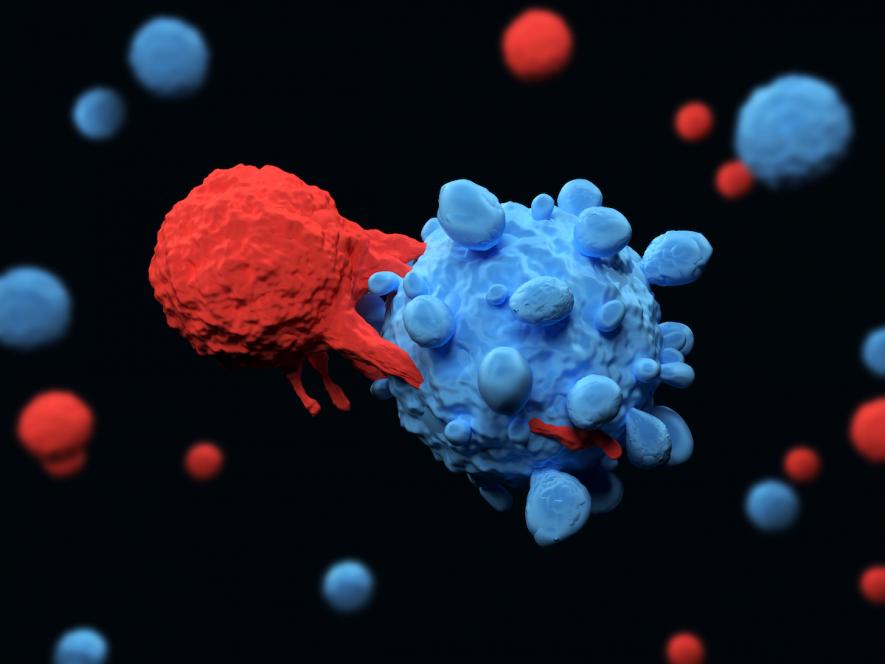
The current COVID-19 pandemic is showing that your ability to fight off the virus is very closely connected to the health of your immune system. If you are 'immunocompromised' then you are more likely to have complications as a result of contracting the virus. The people most susceptible to developing severe symptoms from COVID-19, as set out by the US Centers for Disease Control and Prevention (CDC)* are…
- People aged 65 and over**
- People living in nursing homes or long term care facilities
- People with high-risk conditions including chronic lung disease, moderate to severe asthma, serious heart conditions
- People who are immunocompromised due to medical treatment such as cancer treatment or surgery
- People with severe obesity (BMI greater than or equal to 40)
- People with other underlying conditions such as diabetes, renal failure or liver disease
- Women who are pregnant (who are known to be at risk with severe viral illness, although data so far on COVID-19 has not shown any increased risk)
The CDC goes on to say that there are other factors which may suppress the immune system, such as smoking, organ transplantation, HIV/AIDS where not adequately controlled, and use of certain medications/drugs such as corticosteroids.
Apart from the factor the CDC lists which references being immunocompromised, many of the other factors are directly linked to issues with the immune system. For example, as the body ages its immune system becomes less effective, and this is the major reason why older people are at greater risk and this also explains the nursing home risk, where greater likelihood of transmission is yet another factor in addition to the age of the residents.
One other group of people mentioned by the CDC – people who are overweight or who have obesity - are at higher risk not only of severe symptoms of COVID-19, but also of developing a very wide range of medical conditions. These include for example heart disease, hypertension, cerebrovascular disease, obstructive sleep apnoea, gastro-eosophageal reflux disease (GERD/GORD), diabetes, Alzheimer's and a number of different types of cancer - including colorectal cancer (see our previous article 'How – and why – is obesity a risk factor for colorectal cancer').
It's important to note that obesity itself does not cause disease. It’s the underlying problem of insulin resistance (IR) which both promotes obesity and at the same time causes a suboptimal immune response. This is of course critical to the body's ability to fight off any disease, including COVID-19.
Dr Renaut sets out the 'Renaut Paradigm' in his book 'The User's Manual For Your Body', which explains how IR - common in the population of most developed countries - and obesity go hand-in-hand.
In short, insulin is released by the body when glucose (from food) makes its way into the bloodstream from the gut wall. Insulin then does its job, which is to 'push' the glucose into the cells in the body that need it most. IR develops where the amount of glucose going into the bloodstream is constantly high and cells get used to this elevated level of insulin, which makes them 'resistant', ie they need more insulin than before to absorb a given amount of glucose. This is very common in modern diets where many foods have a high glycaemic index (GI).
A person with IR will naturally convert most of the glucose into fat (called 'lipogenesis') more so than someone without it (who is referred to as 'insulin sensitive') where most of the glucose goes into body cells. The body only uses body fat as a source of glucose when there is no glucose coming from the gut – a relative rarity with anyone on a modern diet.
At the same time that IR contributes to body fat storage, at the same time (as described above) the process of metabolism slows and all cells work more slowly and less effectively – including immune cells. And if the immune cells are not responding as they should, you have a slower – and less healthy – immune system.
In his book, Dr Renaut describes how combining eating good food (and particularly avoiding processed carbohydrates), doing daily exercise and intermittent fasting (ideally eating only within a 6 hour window) can restore insulin sensitivity, restore an effective immune system and – as an added benefit – help reduce body fat. The overall result is a much lower risk factor of contracting (or being much less affected by) any number of nasties, including COVID-19.
*https://www.cdc.gov/coronavirus/2019-ncov/need-extra-precautions/people-at-higher-risk.html?CDC_AA
**in Australia age guidelines are slightly different with people over 60 and Aboriginal and Torres Strait Island people over 50 considered to be at greater risk of serious illness
See also Dr Renaut's videos on Coronavirus…
The best way to fight Coronavirus - learn how to strengthen your immune system to fight Coronavirus [VIDEO]
We must reconsider current coronavirus strategy [VIDEO]